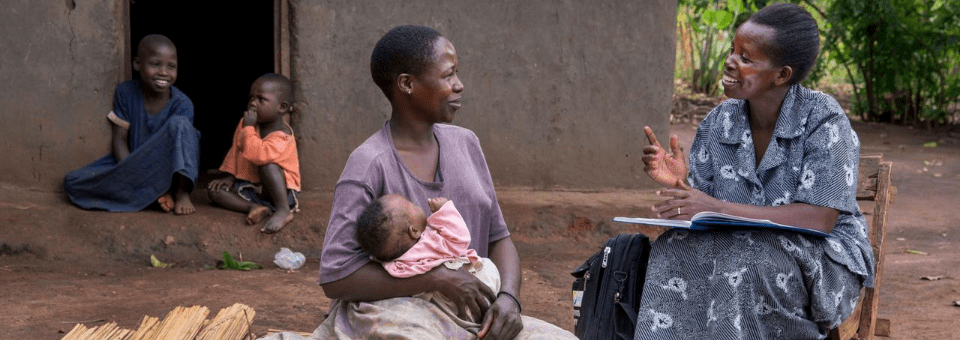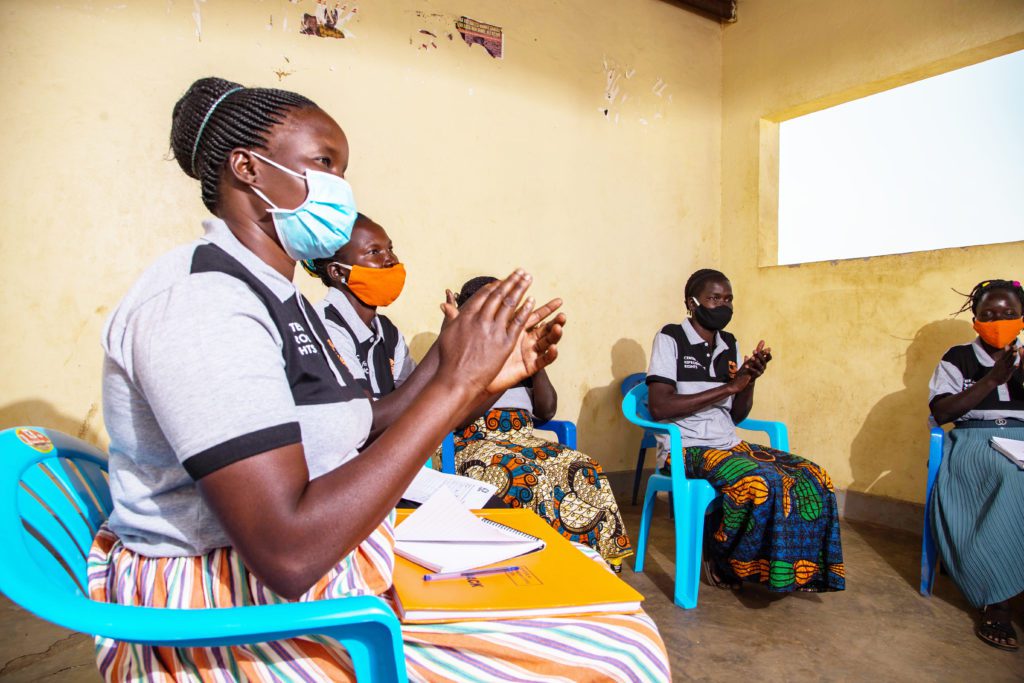Center Launches New Program to Protect Refugee Rights in Uganda

The Center and its partners at CARE International in Uganda have launched a new pilot program to protect the sexual and reproductive health and rights (SRHR) of women and girls in one of Uganda’s largest refugee settlements.
Using a human rights-based approach, the program, which started in June 2020 at the Adjumani settlement, establishes an accountability system for SRHR violations. The program trains elected community representatives and health volunteers and implements community-led structures for monitoring, reviewing, and responding to SRHR complaints and feedback.
Women at the settlement face numerous barriers to accessing sexual and reproductive health services. In addition, an overall lack of accountability within the refugee settlement puts them at heightened risk for SRHR violations.
Uganda is home to approximately 1.4 million refugees, many of whom have fled South Sudan, Burundi, and Democratic Republic of Congo. More than 300,000 people live in the Adjumani district, which includes a semi-permanent settlement community located in Uganda’s West Nile region.
The Uganda pilot is the latest program in the Center’s efforts to advance reproductive rights around the world, and follows the organization’s work in other refugee communities, including in Nigeria.
Developing a “Circle of Accountability” Approach
On a 2019 scoping trip to Adjumani and other nearby refugee settlements, researchers from the Center and CARE identified the structural barriers that women and girls face in accessing sexual and reproductive health services.
While poor access to food, water, and sanitation is common in refugee communities, the women and girls living in Adjumani face additional challenges in accessing maternal health care, post-abortion care services, contraception, and feminine hygiene products. Harmful gender norms around these services often discourage women from seeking SRH care, and when they do seek care, many travel several miles to access the health facility due to the lack of reliable transportation.
The Center and CARE also found that individual complaints were not adequately addressed. For example, “suggestion boxes” were placed throughout settlements for people’s concerns, but the complaints rarely yielded collective action. Rights to privacy are not guaranteed, and many women reported being worried about fear of reprisals for voicing their complaints.
Applying Human Rights Law to Reproductive Rights Issues
The project establishes a mechanism for community-led monitoring, collection, review, and response to SRHR-related complaints when these services lack respect for human rights. The project trains community representatives to advocate for the SRHR of women and girls; it also trains health volunteers to monitor SRHR outcomes at the community level.
To ensure a full circle of accountability, the mechanism is supported by an independent third party, who has the authority to review the SRHR-related decisions taken and to act when these rights are not respected.
“Implementation of international human rights law and principles through rights-based accountability mechanisms is a key element to improving sexual and reproductive health outcomes and preventing maternal morbidity and mortality in humanitarian contexts,” Grady Arnott, Manager of Legal Research at the Center, explained.
The Center and CARE have also urged national organizations and governments to create transportation plans to ensure women have access to health services, as well as an adequate supply of PPE in facilities due to the COVID-19 pandemic.
“The pandemic continues to disproportionately impact marginalized communities, including women and girls affected by conflict.” Arnott said. “Ensuring rights-based accountability for violations of the sexual and reproductive health and rights of women and girls in Adjumani has never been more critical.”
The Center and CARE’s Uganda pilot project will continue through June 2021.
Related content:
The Center Releases New Report on Sexual and Reproductive Rights in Nigerian Conflict Zones

